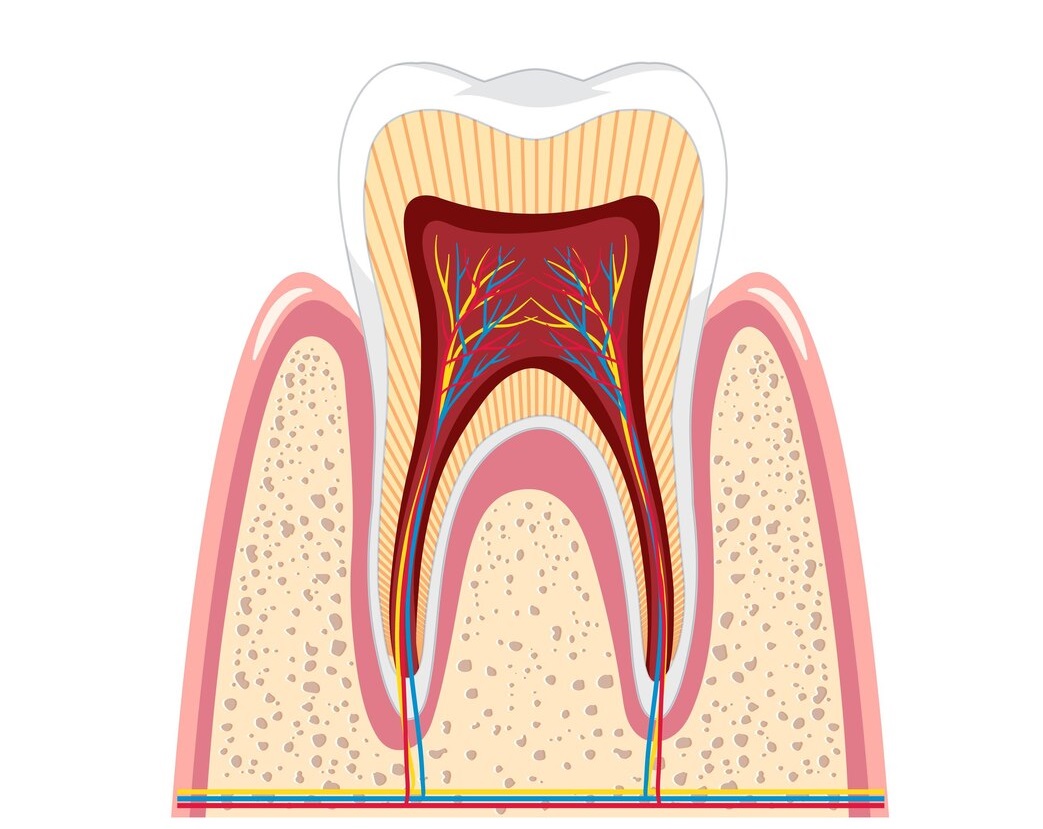Understanding Dentin Hypersensitivity
Dentin hypersensitivity is a condition where teeth experience pain or discomfort when exposed to stimuli such as hot, cold, sweet, or acidic foods, or even during toothbrushing. This occurs due to the thinning of the protective enamel layer or gum recession, exposing the dentin (the sensitive layer beneath the enamel).
According to Prof. drg. Diatri Nari Ratih, M.Kes, Ph.D, Sp.KG.(K) in her book “Dentin Hypersensitivity” (UGM Press), not everyone with dentin hypersensitivity seeks treatment, as some do not perceive it as a serious oral health issue. However, the pain and discomfort can significantly impact daily activities and reduce the quality of life if not properly managed.
1. Use Special Toothpaste for Sensitive Teeth
Toothpaste for sensitive teeth contains active ingredients like potassium nitrate or stannous fluoride, which help relieve discomfort by forming a protective barrier on the dentin surface. Regular use can reduce symptoms and protect teeth from external stimuli.
2. Avoid Foods and Beverages That Trigger Sensitivity
Patients with dentin hypersensitivity should avoid excessively hot, cold, acidic, or sweet foods and drinks, as these can worsen symptoms and cause discomfort. Opting for foods at room temperature can help minimize irritation.
3. Use a Soft-Bristled Toothbrush
Brushing with a soft-bristled toothbrush is essential to prevent further enamel and gum damage. Avoid brushing too hard, as it can wear down enamel and exacerbate sensitivity. Gentle and controlled brushing techniques help maintain oral health.
4. Maintain Good Oral Hygiene
Even though sensitive teeth require extra care, maintaining overall oral hygiene is crucial. Brushing twice daily and using dental floss to clean between teeth can help prevent plaque buildup, which may worsen sensitivity.
5. Visit the Dentist Regularly
If sensitivity persists, consulting a dentist is highly recommended. Dentists can provide additional treatments, such as fluoride applications or protective coatings, to reduce sensitivity. In certain cases, a special procedure may be recommended to protect exposed dentin.
***
Dentin hypersensitivity should not be ignored, as it can affect daily comfort and quality of life. With the right care, such as using specialized products, avoiding trigger foods, and maintaining oral hygiene, patients can effectively manage this condition. Consulting a dentist is essential to find the best solution for individual cases.
This article raises awareness about dentin hypersensitivity in alignment with the Sustainable Development Goals (SDGs), particularly: SDG 3: Good Health and Well-being, by ensuring access to adequate dental care; SDG 4: Quality Education, by promoting dental health education in communities; and SDG 10: Reduced Inequality, by ensuring that all individuals, including underserved communities, have access to proper dental care.
References
Prof.drg. Diatri Nari Ratih, M.Kes, Ph.D, Sp.KG.(K), Dentin Hypersensitivity, https://ugmpress.ugm.ac.id/id/product/kesehatan-kedokteran/hipersensitivitas-dentin
Author: Rizky B. Hendrawan | Photo: Freepik

